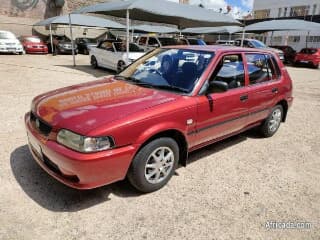Engine Purchasing Specialist Tips on Picking the Right Engine for Your Specific Needs
Choosing the ideal engine for your certain demands entails a complicated interplay of aspects that surpass plain horse power numbers. From power result to sustain performance, the decision-making procedure can be discouraging. Recognizing the nuances of engine kinds, dimensions, and their compatibility with your car is vital. There are expert pointers that can help browse this surface with self-confidence. By delving right into the ins and outs of power versus efficiency, evaluating gas rankings, and budgeting for long-lasting expenses, one can really optimize their engine option.
Power Vs. Performance: Discovering the Balance

When picking an engine, it is vital to strike an equilibrium between power and efficiency to meet your details demands properly. Power describes the engine's capability to produce power for propulsion, establishing variables like velocity, hauling capacity, and total efficiency (Toyota Tazz Engine For Sale). On the various other hand, efficiency connects to how well the engine uses gas to create power, influencing variables such as gas economic climate and environmental friendliness
Attaining the right balance between power and efficiency is necessary due to the fact that an engine that is also effective might take in too much fuel, leading to higher operating expense and unnecessary stress on the environment. Conversely, an engine that focuses on effectiveness over power may cause slow performance, particularly sought after situations like lugging hefty tons or driving uphill.
To make a notified choice, think about elements such as your typical driving problems, the desired use the automobile, and your individual preferences. By evaluating your requirements and top priorities, you can pick an engine that strikes the ideal equilibrium in between power and efficiency, ensuring optimal efficiency while decreasing environmental effect and operating expense.
Understanding Engine Dimension and Kind

Typical engine kinds include inline engines, V engines, and rotating engines, each with its distinct benefits and disadvantages. Understanding the interplay in between engine dimension and type is vital in picking an engine that straightens with your certain requirements and priorities, whether it be power, performance, or an equilibrium of both.
Consider Your Vehicle's Needs
If you are looking for an engine for a heavy-duty vehicle that will certainly be used for towing, you will require an effective engine with high torque capabilities. On the various other hand, if you are picking an engine for a compact automobile largely used for city commuting, gas performance may be an extra critical element to take into consideration.

Assessing Fuel Efficiency Ratings
Assessing fuel effectiveness ratings is a critical facet of choosing the ideal engine for your automobile, making sure expense savings and environmental sustainability. Gas performance scores, usually measured in miles per gallon (MPG) for gasoline engines or kilowatt-hours per 100 miles (kWh/100 miles) for electrical engines, show exactly how far a vehicle can take a trip on a certain amount of gas or power. Greater MPG or lower kWh/100 miles worths indicate a lot more efficient engines, converting to minimized fuel costs and reduced carbon emissions.
Additionally, compare various engine choices within the very same car class to determine the most affordable choice. Aspects such as engine dimension, weight, aerodynamics, and crossbreed or electrical abilities can all influence gas efficiency.
Budgeting for Long-Term Prices
Purposefully intending for lasting expenditures is imperative when selecting an engine, ensuring financial sustainability over the vehicle's life-span. While the first acquisition cost of an engine is a considerable element, it is important to think about the long-lasting costs associated with maintenance, repair services, and fuel usage.
In addition, looking into the schedule and expense of substitute parts for the selected engine is important in budget preparation. Engines with conveniently available and inexpensive components can substantially impact long-term upkeep costs. Additionally, considering the engine's longevity and anticipated life expectancy can help stay clear of unanticipated substitute costs in the future. By carefully budgeting for these long-lasting expenses and factoring them right into the decision-making process, people can choose an engine that not just fulfills their immediate needs yet likewise continues to Clicking Here be cost-efficient throughout its life expectancy.
Conclusion
Finally, picking the right engine for your particular demands requires balancing power and effectiveness, understanding engine size and type, considering your lorry's requirements, examining gas performance ratings, and budgeting for long-lasting prices. By visit here carefully considering these aspects, you can make certain that you choose an engine that meets your needs and offers ideal efficiency for your automobile.
To better refine the selection process of an engine that strikes the optimal balance between power and efficiency, it is necessary to dive right into the details of recognizing engine dimension and kind. Engine dimension refers to the complete quantity of air and gas that can be pressed via the engine cyndrical tubes. Usual engine kinds consist of inline engines, V engines, and rotating engines, each with its special benefits and disadvantages. Comprehending the interaction between engine size and kind is crucial in choosing an visit this site engine that lines up with your certain requirements and concerns, whether it be power, efficiency, or a balance of both.
Fuel efficiency ratings, generally measured in miles per gallon (MPG) for gasoline engines or kilowatt-hours per 100 miles (kWh/100 miles) for electrical engines, show exactly how far an automobile can take a trip on a details quantity of fuel or electrical energy.